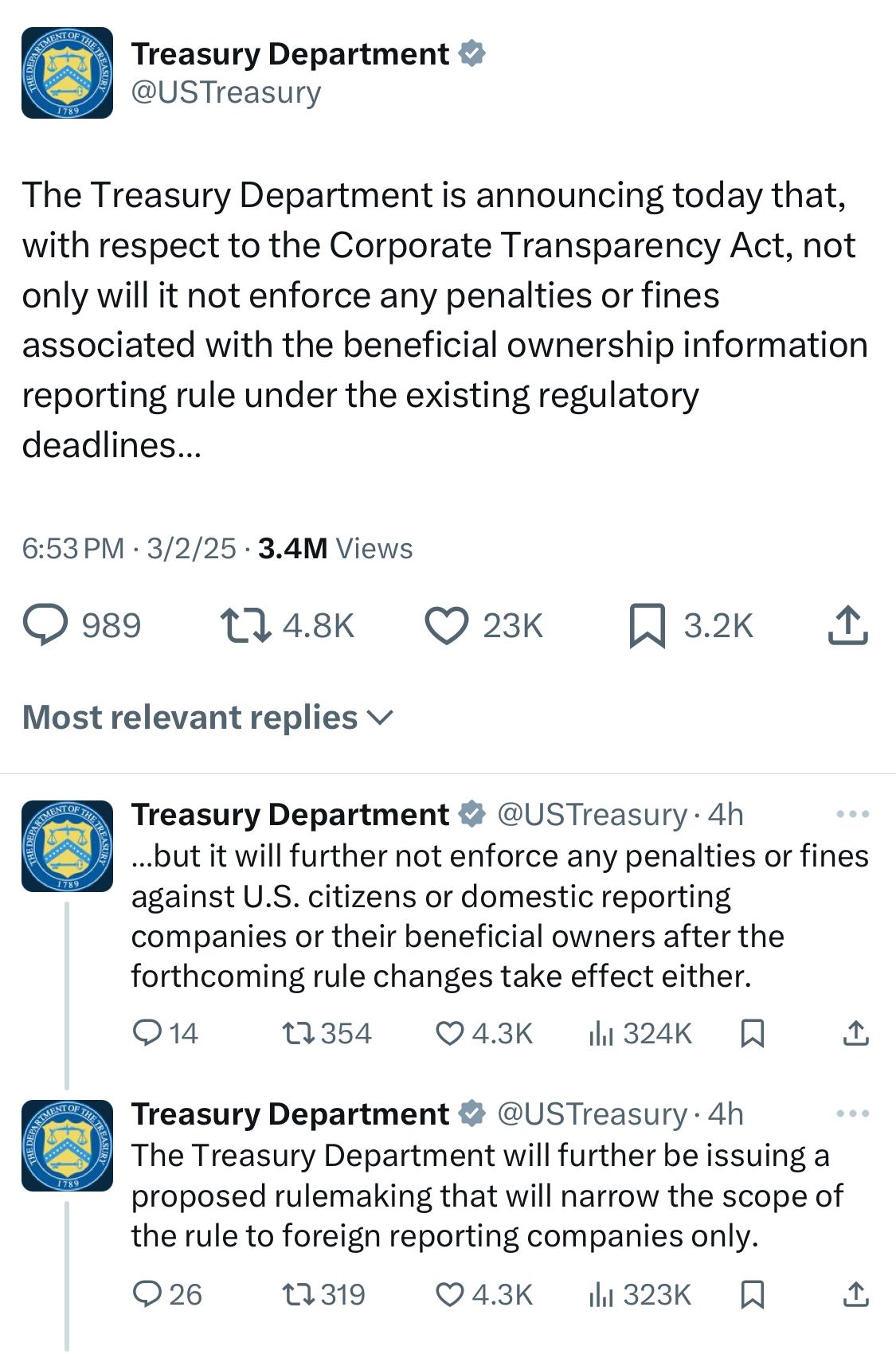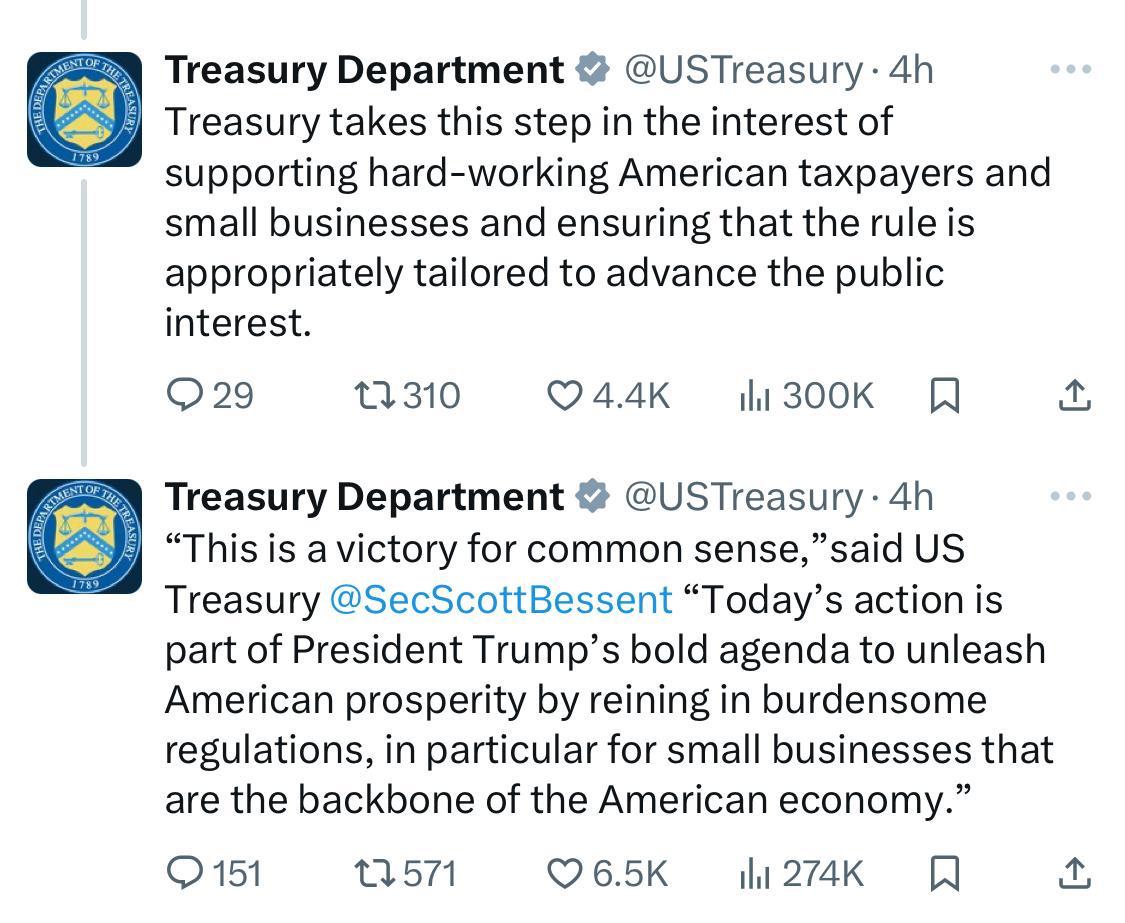"A week ago, Atlanta Fed’s nowcast of consumption was 2.2% q/q annualized; now it’s zero… In the 11 or so years of nowcasted consumption growth, there have been no instances of negative values (or zero values) outside of 2020…this is a somewhat remarkable occurrence." #MenzieChinn https://econbrowser.com/archives/2025/03/nowcasted-consumption-falls-to-stall-speed
impeach. convict. remove. rinse. repeat.
impeach. convict. remove. rinse. repeat.
impeach. convict. remove. rinse. repeat.
@artcollisions yes! though i've not watched the film yet.
it's remarkable the term gaslighting was invented prior to this administration.
cf @ddayen on Schroedinger's CFPB. https://prospect.org/economy/2025-03-03-cfpb-we-didnt-mean-stop-work-russell-vought/
@ewisniowski @marick @SteveRoth @mpjgregoire @swart it’s interesting timing to read the Heath piece. the immovable object of American suspicion of executive power has finally been overcome by the irresistible force of a DGAF administration. the result is likely to be catastrophe.
executive power has thick tails. you really want to pair it with institutions of good judgment that would bias towards the rightward tail.
in policy, you can never get it just right. you should try to get close, but perhaps more importantly, you have to choose in which direction it will be less costly to err, then condition your choices so they will err — hopefully not too much but inevitably — in that direction. going for symmetrical optimality is foolish hubris.
maybe we could have a strategic sportsbets reserve too.
drain the swamp.
screenshot from thread beginning https://xcancel.com/ustreasury/status/1896348155522039985
[new draft post] Meeting Starter https://drafts.interfluidity.com/2025/03/02/meeting-starter/index.html
so any progress in, you know, the US Congress, the branch that controls the money, on funding a US Crypto Reserve?
(genuinely asking! it certainly wouldn't surprise me if this craven caucus included it in a budget in deference to dear leader.)
@john you are a generous man.
do you ever wonder what the kompromat is on Rubio?
waiting for the Trump Administration to 💡: "hey, what if we replaced the Strategic Petroleum Reserve with a strategic reserve of petroleum *stocks* (we could buy up in advance!)"
10 Observations About Tokyo by #QuicoToro https://www.persuasion.community/p/10-observations-about-tokyo ht @SteveRoth
hear me out: #eggcoin
a thing i find odd about people into (bad, ugly) Mearsheimer-ish "offensive realism", great-power spheres of influence, etc is the presumption that Russia is or would be a great power in such a world, rather than a vassal either of China or Europe, or site of conflict for resources between them.
so obviously a pump. who got to say, and who got to know, which cryptocurrencies Trump would name?
i’m sure he named Cardano because Trump is just really into a Haskell foundation and claims of provably correct proof-of-stake.
will it end in meaningful purchase, or just the usual dump? ¯\_(ツ)_/¯
It’s not inflation. Trump has upgraded eggs into the category of luxury goods. Enjoy!
More upgrades to come!
You could be earning double points.
if March 4 was chosen as the date the tariffs take effect in order to let March 3 be the day of frantic negotiations to postpone them, does Trump/Vance outraging trading partners on Friday render it harder for them to deliver the pretend victories that Trump demands as pretext for postponement?

